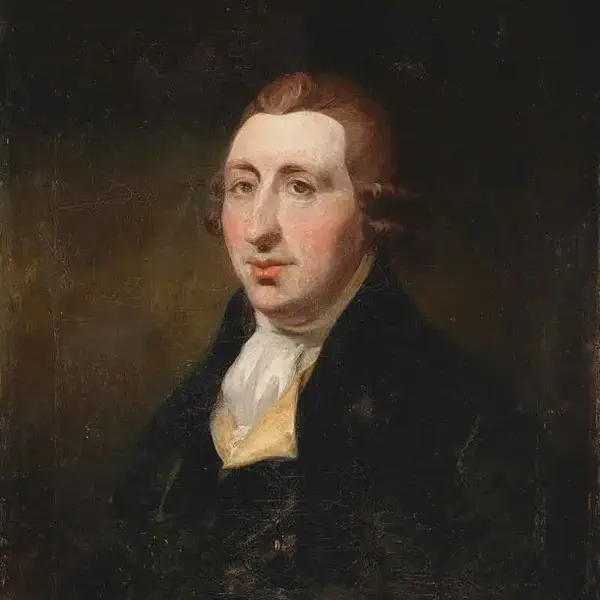
James Napper Tandy Convenes the First Meeting of Dublins United Irishmen
November 09, 1791
James Napper Tandy (February 1739 – 24 August 1803), known as Napper Tandy, was an Irish revolutionary and a founder of the United Irishmen. He experienced exile, first in the United States and then in France, for his role in attempting to advance a republican insurrection in Ireland with French assistance.
The son of a Dublin ironmonger, He started life as a small tradesman; but turning to politics, he became a member of the corporation of Dublin, and was popular for his denunciation of municipal corruption and his proposal of a boycott of English goods in Ireland, in retaliation for the restrictions imposed by the government on Irish commerce. In April 1780, Tandy was expelled from the Dublin volunteers (see Henry Flood) for proposing the expulsion of the Duke of Leinster, whose moderation had offended the extremists. He was one of the most conspicuous of the small revolutionary party, chiefly of the shopkeeper class, who formed a permanent committee in June 1784 to agitate for reform, and called a convention of delegates from all parts of Ireland, which met in October 1784.
Tandy persuaded the corporation of Dublin to condemn by resolution Pitts amended commercial resolutions in 1785. He became a member of the Whig club founded by Henry Grattan; and he actively co-operated with Theobald Wolfe Tone in founding the Society of the United Irishmen in 1791, of which he became the first secretary. James Napper Tandy convenes inaugural meeting of Dublin Society of United Irishmen at the Eagle Tavern, Eustace Street. Chairman Simon Butler, secretary Napper Tandy. Dublin society meets on alternate Fridays, normally at the Music Hall, Fishamble Street.
James Napper Tandy (1740-1803) was a notable Irish revolutionary and a key figure in the early stages of the Irish republican movement. Here are some key points about his life and contributions:
Early Life: James Napper Tandy was born in Dublin, Ireland, in 1740. He came from a Protestant family.
United Irishmen: Tandy was one of the founding members of the Society of United Irishmen, a republican organization that aimed to advocate for Irish independence from British rule and promote equality and religious tolerance. The society was established in 1791.
Rebellion of 1798: Tandy was an advocate for armed rebellion against British rule. He played a role in planning and organizing the 1798 Irish Rebellion, which aimed to achieve Irish independence. However, the rebellion was ultimately suppressed by British forces.
Exile and International Involvement: Following the failure of the 1798 Rebellion, Tandy went into exile in France and later in the United States. He was involved in various revolutionary and political activities in both countries.
Return to Ireland: Tandy returned to Ireland in 1801 and was arrested. He was later released and died in 1803.
James Napper Tandy’s involvement in the early republican movement in Ireland, his advocacy for Irish independence, and his international activities marked him as a prominent figure in the history of Irish republicanism and the struggle for Irish self-determination.